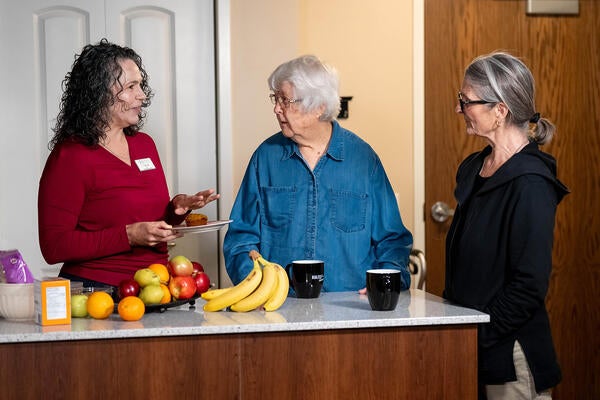
Understanding frailty will lead to better care for older adults
Research found most frail ICU survivors had only a one in five chance of living to one year after discharge

Research found most frail ICU survivors had only a one in five chance of living to one year after discharge
By Media RelationsFrailty is a better predictor than factors such as age when determining how older adults fare one year after receiving critical care.
A team led by researchers from the University of Waterloo analyzed data from more than 24,000 community-dwelling older adults receiving home care in Ontario who were subsequently admitted into an intensive-care unit (ICU).
They applied three different measures for baseline frailty and found that an individual’s level of frailty was linked to survival one year later. The most frail ICU survivors had only a one in five chance of living to one year after discharge.
Clinical frailty is age-related and characterized by a reduced ability to maintain or restore physical, physiological or cognitive functions when subject to health stressors.
“Our results tell us that baseline frailty can help inform treatment plans and goals of care for older persons with critical illness,” said Luke Turcotte, first author and a postdoctoral fellow at Waterloo during this research.
Turcotte stressed that even though frailty levels could be a key measure when determining who will benefit from critical care, it is important to differentiate between frailty and disability, particularly for individuals with chronic and stable disabilities.
“The concept of frailty relates to age-associated vulnerability, and thus its application needs to be limited to older persons with complex health problems,” said senior author George Heckman, a professor in the School of Public Health Sciences and Schlegel-UW Research Chair in Geriatric Medicine at the Research Institute for Aging.
Previous research had analyzed smaller data sets, with similar conclusions. For this study, the researchers used data from interRAI standardized health assessments, used in home care in almost all of Canada and internationally.
The researchers believe the concept of frailty can best be used to guide conversations about advance care planning with home care clients and their families. “For instance, a frail individual may express the wish to forego ICU care given a poor prognosis,” Heckman said. “Additional research should focus on post-ICU functional and quality of life outcomes.”
The paper, “Baseline Frailty as a Predictor of Survival after Critical Care: a Retrospective Cohort Study of Older Adults Receiving Home Care in Ontario, Canada” was co-authored by Luke Turcotte, Ann Alexandra Zalucky, Nathan M. Stall, James Downar, Kenneth Rockwood, Olga Theou, Caitlin McArthur, and George Heckman. It was published in the journal CHEST.

Read more
The Government of Canada announces funding to support research in food policies and medical devices

Read more
How machine learning empowers collaboration between computer science, math and medical research

Read more
Dr. Heather Keller discusses the need to transform mealtimes in Canada’s long-term care homes from a service to a meaningful form of care
The University of Waterloo acknowledges that much of our work takes place on the traditional territory of the Neutral, Anishinaabeg, and Haudenosaunee peoples. Our main campus is situated on the Haldimand Tract, the land granted to the Six Nations that includes six miles on each side of the Grand River. Our active work toward reconciliation takes place across our campuses through research, learning, teaching, and community building, and is co-ordinated within the Office of Indigenous Relations.